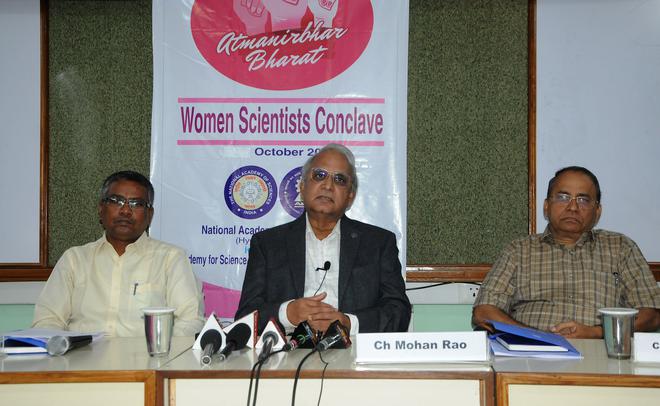Council of Scientific and Industrial Research’s first woman director general N. Kalaiselvi is scheduled to deliver the keynote address at the ‘Women Scientists Conclave: Self Reliance, Challenges and Future’ at the IICT auditorium on Monday. DRDO DG Suma Varughese will deliver the Dr.K.V. Raghavan Memorial Lecture.
The seminar is being jointly organised by the National Academy of Sciences, India (Hyderabad Chapter) and the Academy for Science, Technology, and Communication (ASTC).
Governor Tamilisai Soundarajan will be the chief guest for the event where Tanusri Sinha-Dasgupta of S.N. Bose National Centre for Basic Sciences will deliver a lecture on ‘Materials by computation, challenges and opportunities. Besides, University of Hyderabad’s Geeta Vemuganti will discuss stem cells in eye research and DBT-Centre for DNA Finger Printing & Diagnostics’ Sangita will talk on ’Tuberculosis and immunological therapy’.
These details were shared by CSIR distinguished scientist and chairman of NASI and ASTC Ch. Mohan Rao at a press conference here on Saturday. He informed that in CSIR official data shows that the participation of women in science and technology has been increasing over the past two decades in the country.

The percentage of women researchers has gone from 13.9% in 2015 to 18.7% in 2018, as per DST data. There were fewer women researchers in engineering and technology (14.5%) compared with those in the fields of natural sciences and agriculture (22.5% each), and health sciences (24.5%).
The share of women researchers in the social sciences and humanities is, however, much higher at 36.4% whereas global data shows women represent 33.3% of all researchers, and only 12% of members of national science academies are women. In cutting edge fields such as artificial intelligence, only one in five professionals is a woman.
Science and Technology Ministry and the University Grants Commission had introduced several programmes to encourage young minds apart from a programme offering a stipend/funding to pursue research even two years after pregnancy and childbirth to reduce the dropouts from science and technology, Mr.Mohan Rao said.







